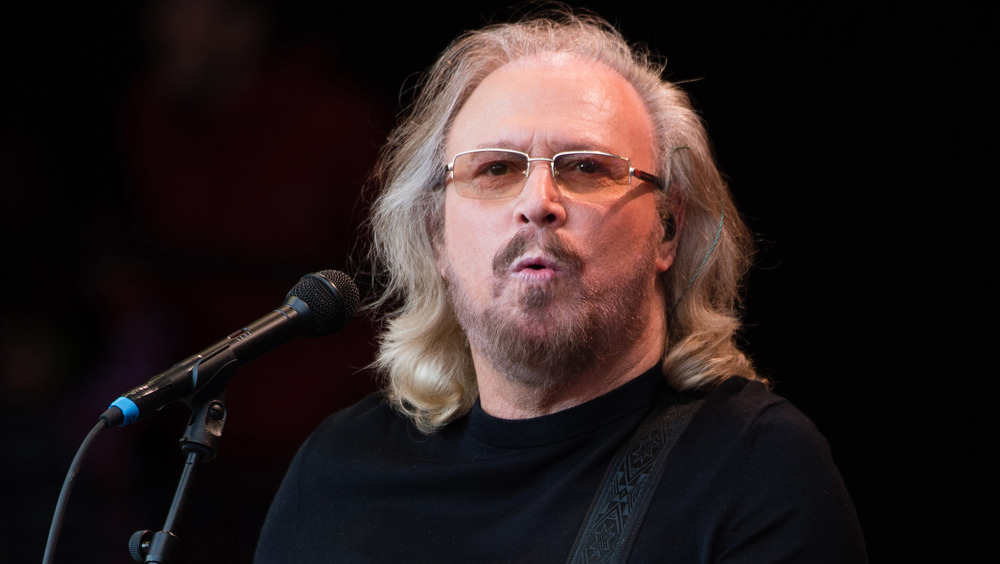It was meant to be a celebration — a once-in-a-lifetime concert at Wembley Stadium marking the five-decade legacy of Barry Gibb, the last surviving Bee Gee. But as the sun dipped below the horizon and the stage lights bathed the crowd in a golden glow, something shifted. The atmosphere, electric just moments before, grew reverently still. And then, Barry Gibb stepped forward, holding his guitar not as an instrument, but as a vessel for grief.

News of the rock legend’s passing had barely begun circulating when Barry paused the concert, his voice shaking as he addressed the sea of 80,000 fans gathered before him.
“Tonight was meant to be about celebration,” he began, his eyes wet, “but I can’t stand on this stage and sing these songs without first honoring a man who redefined what it meant to fight, to fall, and to rise again. Ozzy Osbourne wasn’t just a voice — he was an earthquake. He shattered every rule, and somehow, he stitched his own broken pieces into something the rest of us could stand on.”
What followed was not rehearsed, not planned, not expected. Backed only by a single acoustic guitar, Barry Gibb began to sing a haunting, stripped-down rendition of “To Love Somebody” — one of the Bee Gees’ most heartfelt ballads — but this time, each word carried a different weight.
“You don’t know what it’s like… baby, you don’t know what it’s like… to love somebody… the way I love you.”
As the camera panned across the stadium, the impact was immediate. Fans were weeping openly, holding each other, swaying gently to the rhythm of a song reborn as a eulogy. The giant screen behind Barry displayed a black-and-white montage of Ozzy: screaming into microphones, collapsing into laughter with Sharon, holding his children, and standing alone in spotlights — a man who lived loudly and loved deeply.
When the song ended, Barry didn’t speak right away. He simply looked skyward, then placed a hand over his heart and whispered:
“Thank you, brother. For never giving up — and for teaching the rest of us how to survive.”
Though the Bee Gees and Black Sabbath couldn’t have been further apart musically, Barry reminded the world that true artistry isn’t about genre — it’s about truth, and few lived with more raw, unapologetic honesty than Ozzy.
Backstage after the show, Barry elaborated on their unlikely connection.
“Ozzy and I came from different corners of music, but we came from the same kind of pain. The kind that never leaves you, but makes your voice real. I always respected that about him. He never hid.”
The tribute may have lasted only a few minutes, but its echo will linger for years. For the 80,000 people who stood together that night — many of them fans of both men, many of them children of the eras both artists helped define — it was not just a concert anymore. It was communion.
And in that communion, Barry Gibb didn’t just mourn a fellow legend. He reminded the world why Ozzy Osbourne mattered — and why, long after the screams fade and the spotlight dies, his voice will never stop reverberating through the hearts of those who dared to feel too much, too loudly.